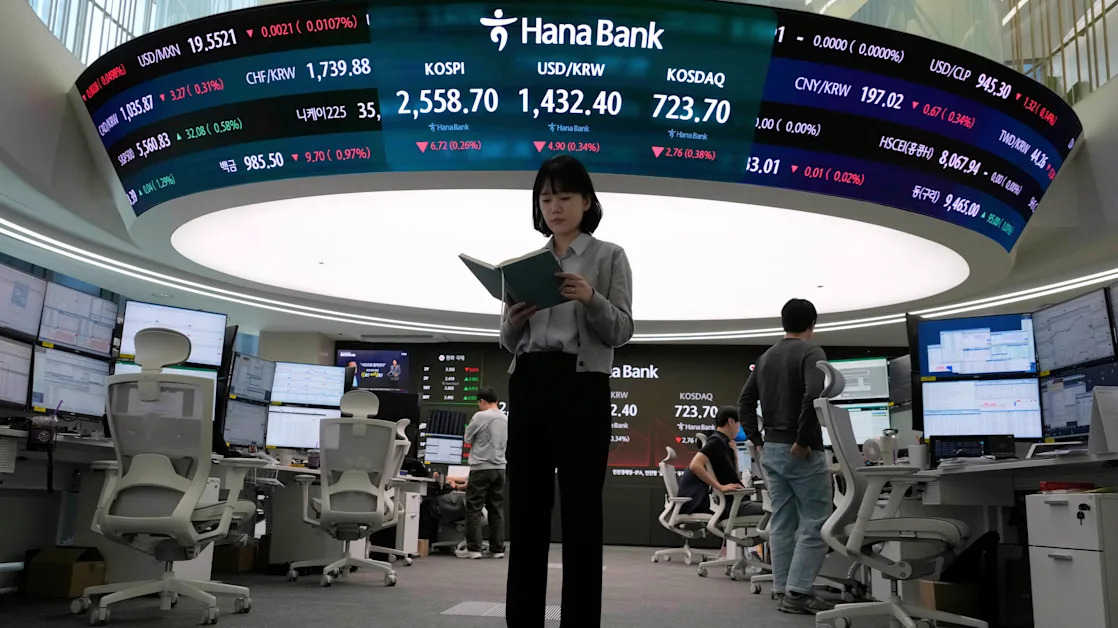
Asian shares are mixed, tracking gains on Wall Street as corporate profits pile higher
Shares were mixed Wednesday in Asia after U.S. stocks rose again as companies reported stronger-than-expected profits.
U.S. futures fell and oil prices declined.
Uncertainty around President Donald Trump’s trade war limited gains in U.S. stocks on Tuesday. So did a drop in consumer confidence and a weak update on how many job openings U.S. employers were advertising at the end of March.
Tokyo's Nikkei 225 index climbed 0.6% to 36,045.38.
Japanese automakers’ shares were mixed even after Trump signed an order relaxing some U.S. tariffs on imports of autos and auto parts.
Shares in Toyota Motor Corp. lost 1.6% while Honda Motor Co. gained 0.4%. Nissan Motor Co. lost 0.2%.
In Hong Kong, the Hang Seng rose 0.4% to 22,093.73, while the Shanghai Composite index slipped 0.2% to 3,281.20 as surveys showed export orders to manufacturers declined in April as higher U.S. tariffs on Chinese goods began to take effect.
South Korea's Kospi dropped 0.3% to 2,556.61, while the S&P/ASX 200 in Australia surged 0.7% to 8,126.20.
Taiwan's Taiex and the Sensex in India were both little changed.
On Tuesday, U.S. stocks rose again. The S&P 500 climbed 0.6% to 5,560.83 as its winning streak extended to a sixth day . The Dow Jones Industrial Average added 0.7% to 40,527.62. The Nasdaq composite rose 0.5% to 17,461.32.
CEOs say they’re unsure how long their companies can keep piling up profits due to the lack of clarity about Donald Trump’s trade war .
Honeywell International helped lead the market with a gain of 5.4% after reporting stronger profit and revenue for the latest quarter than analysts expected. It also raised its forecast for profit over the full year.
Sherwin-Williams rose 4.8% for another one of the market’s bigger gains after the paint and coatings company likewise reported a better-than-expected profit.
UPS stock swung between losses and gains at the day’s start of trading after it reported a stronger profit than analysts expected for the first three months of 2025. Because it’s the world’s largest package delivery company, UPS can offer a window into how the global economy is doing.
But UPS also said it wasn’t updating its financial forecasts previously given for 2025 because of “the current macro-economic uncertainty.” It also said it expects to cut about 20,000 jobs and close 73 buildings this year. Its stock finished 0.4% lower.
Investors fear Trump’s tariffs could bring a recession if left unaltered because they could freeze global trade and send prices higher for all kinds of products. And Trump’s on-again-off-again rollout could by itself throw into disarray the long-term plans for spending and investment by businesses and households.